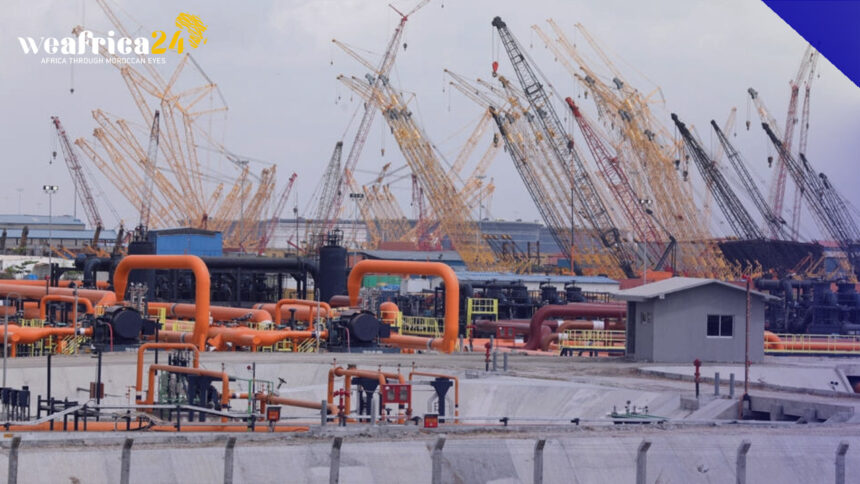Nigeria, the leading crude oil producer on the continent, currently relies heavily on fuel imports. However, the ongoing rehabilitation of four public refineries, coupled with the imminent commissioning of billionaire Aliko Dangote’s mega-refinery project in Lagos, holds the potential to transform the nation’s energy landscape.
In recent weeks, six million barrels of crude oil have been delivered to the Lekki port, marking a crucial milestone in fueling the initial operations of the Dangote Group’s mega-refinery. This development follows more than six months since the official inauguration of the colossal $20 billion project, which faced significant delivery delays.
In a statement, the Dangote Group announced the “commencement of production” of diesel and aviation fuel. However, the initiation of fuel production is still pending. An industry expert familiar with Nigeria’s oil sector explained, “This is the first time they are putting oil into the system and running crude through the machinery. It’s mainly about testing each piece of equipment to ensure they function.”
Experts highlight the technical complexity of commissioning the world’s largest single-train refinery, emphasizing the need for a consistent and substantial supply of crude oil to sustain operations. “They won’t be able to sustain more than a few weeks with this initial delivery. However, machinery of this scale consumes a significant amount of energy and incurs considerable operational costs,” remarked a source in Lagos. “If it is halted again after the testing phase, restarting production will take months.”
The Supply Challenge
Securing a steady supply of crude oil is pivotal to maintaining refined product production. The Nigerian National Petroleum Corporation (NNPC), a 20% shareholder in the project, committed to providing approximately 300,000 barrels of crude per day. However, this falls short of supporting the refinery’s maximum production capacity of 650,000 barrels per day.
Charles Thiémélé, Director of Africa at BGN, emphasized, “To achieve this production capacity, it is crucial to ensure that 20 to 30 crude oil cargoes are delivered regularly to Lekki. This poses a technical challenge, especially considering the need for substantial storage capacity to keep the refinery running seamlessly.”
Ultimately, the Dangote refinery may need to source crude oil from outside Nigeria to meet its demands. “There is always crude available on the market, as long as you have the means to purchase it,” affirmed a trader, expressing confidence in the commercial prospects for the refined oil emanating from the Lekki facility.







